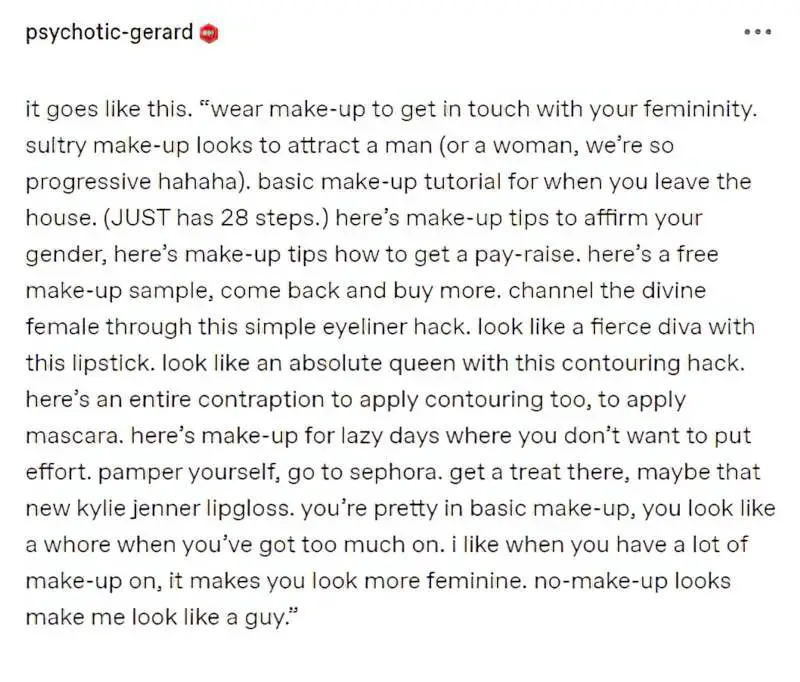If you’re sick of religion and politics but would nonetheless like to start an argument at a party, there are a number of tried-and-trusted topics you might turn to which will reliably kill the vibe:
- Diet, specifically, what balance of macronutrients constitutes the optimal human diet? Opinions on carbs. Opinions on vegetarianism.
- The amount of control parents should have in their children and teenagers’ lives (screentime limits, what age is appropriate for kids to attend the movies on their own etc.)
- The merits and implementation of self-driving cars
- Whether boring jobs should be automated
- The feasibility of a universal basic income and the definition of laziness
- The merits of GPT and other AI technologies
- What constitutes ‘real art’
- Whether calling grown women ‘girls’ is a minor slur
- Equal pay for female sports professionals (fortunately becoming less controversial)
- Whether the gender pay gap exists (it does, and not because women simply ‘choose differently’)
- Whether such-and-such thing that women tend to do is “empowering” e.g. wearing high heels, or make-up.
“Empowering”. Let’s take a look at what that word means. If you’re anything like me, by this point you’ve developed a bit of an ick reaction to it.
THE MEANING OF EMPOWERMENT
There’s a reason why high school debaters define their terms. Empowerment refers to two separate but related ideas, which partly explains many disagreements:
EMPOWERMENT DEFINITION
- authority or power given to someone to do something
- the process of becoming stronger and more confident, especially in controlling one’s life and claiming one’s rights.
So in the case of make-up, one person might simply be arguing that make-up makes them “stronger and more confident” (meaning 2) whereas the other person assumes she’s arguing that make-up has the magical ability to confer authority or power, and that without wearing make-up, she’s unable to do something (meaning 1) she’d manage in maquillage.
In the context of healthcare, The World Health Organisation says empowerment is “the level of choice, influence and control that users of mental health services can exercise over events in their lives.”
Note the word “choice”. Is the wearing of make-up really a choice?
EMPOWERMENT CASE STUDY: CAN MAKE-UP BE EMPOWERING?
When feminists argue that make-up cannot confer power, they are generally saying this: If wearing make-up helps a woman, or a femme-coded individual, to feel more confident and like she can do anything, the make-up is simply lifting her up to a baseline of confidence which men already have. Under white capitalist patriarchy, women are required to look pretty before being taken seriously, or even seen. The wearing of make-up is an unmarked act. A woman who makes herself pretty in the expected ways is conforming to expectations.
Also, cosmetics cost money. Make-up application takes time (and an increasing level of skill).
Therefore, any obligation to buy and apply make-up is not true empowerment.
Complicating factors
- Whereas women are expected to wear make-up, men are forbidden from wearing it. So when a man wears make-up, especially a queer man, he is doing something radical by messing with the gender hierarchy. That’s why drag is a political act.
- This political act extends to counter-culture people of all genders when the make-up does not conform to the Western Beauty Standard, but instead makes them look punk or goth or otherwise marks them as a person who refuses to conform to oppressive social norms.
- But counter-culture beauty is simply a different kind of beauty. Goth and queer culture is hardly free from pressure to look certain ways.
- Even within the same gender, make-up is not equal. Women who don’t fit other aspects of the Western Beauty Standard sometimes ‘compensate’ for their perceived lacks by using make-up.
- Some people are completely transformed by make-up, whereas others “don’t need it” in order to basically conform to the Western Beauty Standard. When a woman with no hair and eyebrows due to a health condition refuses an eyebrow crayon, the consequences of her choice are different from the choice of a “naturally beautiful” young woman who is simply using a bit of eyebrow pencil to make a very minimal difference to her brows.
- This inequality catches up with all women and femme-coded people, because age comes for everyone. An older woman without make-up is coded as: poor, unkempt, uneducated, lazy, and perhaps even ‘crazy’, depending on her other perceived ‘lacks’.

NOTES
- Criticism of compulsory make-up culture does not equal criticism of individuals who choose to wear it.
- And anyway, choice does not happen in a vacuum.
- Make-up is an art form.
- Make-up can be fun or even a calming ritual when it’s applied as a true choice. A true choice can only happen when there are zero consequences for not doing it. If you get up late and have no time to put on make-up, will you experience negative consequences that day? If so, make-up is not a true choice.
- Individuals may not realise the personal consequence of choosing not to do something normative unless they have actually not done that thing and seen the consequences of not doing it. The police force that is the patriarchy lies invisible and dormant until its rules are transgressed.
- The money women spend on cosmetics mainly enriches men, who are the CEOs of the beauty industry.
- Insecure women are a highly prized marketing demographic. It is in the best interests of corporations to keep women insecure. Since feminists started articulating this reality in the second half of the 20th century, nothing has improved for women. Instead, corporations have chosen to include boys and young men in the mission to produce more collective insecurity for their own enrichment.

- Patriarchy does not equal ‘men’. Patriarchy describes a gender hierarchy with men at the top. All genders are responsible for upholding or beating down the gender hierarchy.
- Some make-up wearers argue that make-up makes them feel happy. Sara Ahmed, English-Australian feminist, writes that our ideas about what makes us happy come from capitalism and colonialism in her book The Promise of Happiness.
- Although the application of make-up can be part of a ritual and very soothing and satisfying, in general, make-up itself is not causing happiness. Happiness comes from the way we are treated by others when we wear make-up. Make-up helps women conform to the Western Beauty Standard. More widely, women who conform are treated better than women who don’t. Women who normally wear make-up and then don’t for a day will regularly get told that they look ill. Women who wear make-up are regarded as more attractive, competent, likable and trustworthy. Make-up humanises by feminising. Unfeminine women are an aberration and therefore unhuman.
- Instrumental conditioning describes when we perform a behaviour and that behaviour is reinforced via reward. The behaviour becomes reinforced; we do that behaviour more. When women wear make-up and are treated better by society, this is an example of instrumental conditioning.
REFERENCES
Can Makeup Every Actually Be Empowering? Here’s the Thing, Tho with Soaliha (a podcast)
